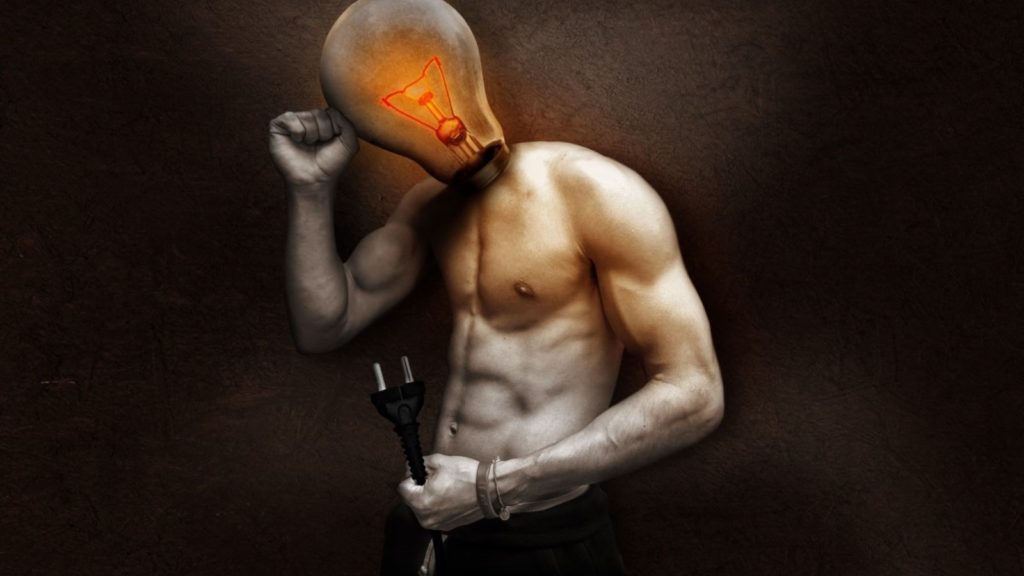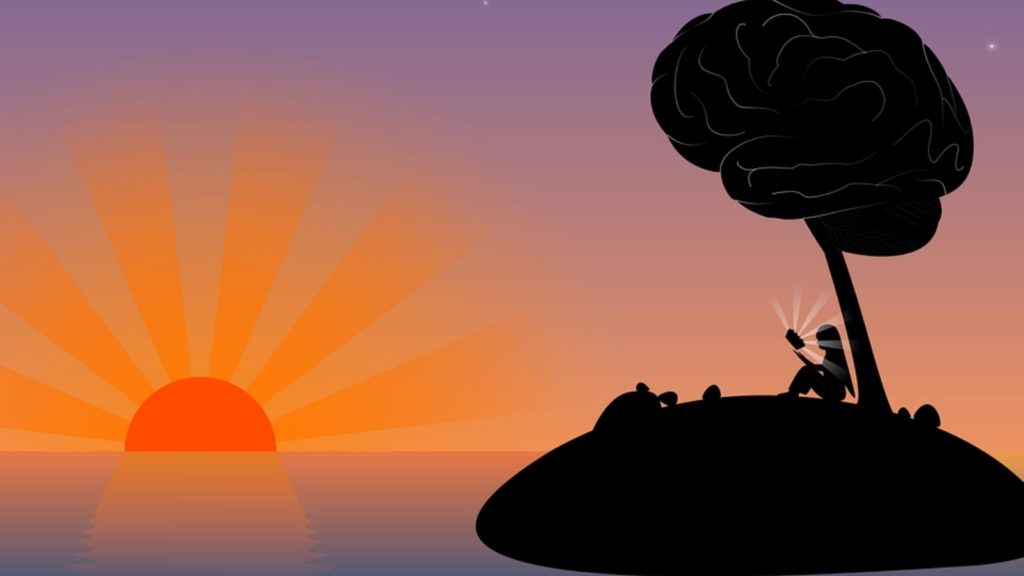Why is it that some people who are, famous, smart, and rich, still take risks that make them lose everything? How is it that 1 bad decision can destroy a perfectly peaceful life?
Why do people make terrible decisions, and can you seriously hack your brain into making better ones? The answer is yes, and in this blog post, I’m going to show you exactly how…
Before you continue can you do me a tiny favour and please join me on social media Why? So, you are always up to date on new content coming your way my tag is @ADVENTAGO
According to inc, it’s estimated that the average adult makes more than 35,000 decisions per day, and most of the decisions that you make don’t matter, yet your brain uses 20% of your body’s energy trying to make them,
For example: What should you wear today, what should you eat for dinner, getting angry with a colleague or your partner when they questioned something you’ve done, thinking that a friend hasn’t called you back because they don’t like you, or why you haven’t followed Adventago.com yet (Hmmm… The only reason I could think of is that person simply hates money… right?) 🤔
Those thoughts and actions consume less energy than stepping back and assessing the situation, and the everyday bad decisions you make are part of a pattern formation.
Their habits that you don’t even think about, they all come from the brain’s main goals of protecting you and preserving your energy.

Stressful situations and negative thoughts activate an alarm system in your brain, the alarm system releases a hormone called cortisol, sometimes cortisol is good especially if you’re in a dangerous situation.
But too much of it at the wrong time will make you feel anxious and stressed, thousands of years ago when we had to hunt for food and fight off predators this was useful, but not so much right now.
Because before you know it, you’re getting extremely anxious because you think you’ve left the stove on even though you clearly switched it off, or you’re getting angry because someone on Twitter is arguing at you.
But, can one hormone have so much control over you? Well in short yes, it’s got one job and that’s to make sure that you’re protected and defended, even if it means getting angry with someone who just asked you a simple question.
There is a way to stop this spiral called the balance principle or the power of positive thinking.
By noticing the negative thought stopping that thought process or action and thinking of a positive one instead your brain releases dopamine and this pushes the cortisol away.
Imagine you’re driving a motorbike, you’re going at 50 miles an hour and you see something coming towards you, instead of going straight into it you break and then you get away from it, that’s the pushback principle.
Just recognizing that your current thought pattern or the way you’re acting is an escalation is enough to stop the cortisol release and then you can push back with a positive memory about a time when you got a compliment at work, or when a friend sent you a nice message.

The pushback principle is effective for negative thoughts or for those times when you feel your blood boiling.
But what about when you’re perfectly happy? Why do we make bad decisions when everything seems to be going great?
Well according to psychologists it’s down to fear and desire, to survive we need to be able to make predictions on how to avoid threats and encounter rewards to your brain, social rewards and threats are just as powerful as physical injury and pain and the brain hates it when it’s not in control.
Neuroscientists found that when the reward is high our participation gets altered as a subconscious shift in our perception causes us to make decisions that are actually bad for us… crazy am I, right?
When it comes to massive decisions that have a high reward, how can we make sure that we make the right choice?
It doesn’t matter who you are an altered perception can still affect you, it can happen to anyone, knowing this will help you to be more self-aware.
Second, before you make a big a life-changing decision talk to a friend layout all the details truthfully, this will help your brain discern the true risk and reward of your decisions and it’ll fight against the perception created by your subconscious.
And lastly, think about the worst possible consequence of your decision and how that would feel, can you handle it? How would the people in your life feel?

We’ve looked at the decisions we make under stress and the decisions we make when there is a lot at stake but you’re probably here for the third kind of decision the everyday choices that we make.
The decision to get out of bed early, to work out, to eat healthily, to read a book instead of scrolling your phone for hours, and the decision to follow Adventago.com (Which you still haven’t yet, have you hmmmm…) 🤨
We know what’s good for us so why do we decide to be lazy? The prefrontal cortex sits right at the top of your brain and that’s where our thoughts and decisions occur.
For a long time, neuroscientists thought that the value of a habit is that you don’t have to think about it but, there’s a part of your cortex that still has control and you can activate it using micro rewards.
Write out your micro goal for the day and say it out loud for every goal you reach, no matter how small your brain releases dopamine, this helps your motivation for the next goal.
According to neuroscience, there are some other things you can do to make sure you make wise decisions.
The time of day, your brain suffers from decision fatigue making decisions early in the morning is the optimal time for most people.
You can also reduce decision fatigue by spending less energy on easy decisions, give yourself 30 seconds to decide whether you want to go out tonight and stick to that decision, save your energy for the bigger choices, or wear 1 piece of clothing like all the super successful entrepreneurs do since it takes out the mental bandwidth of having to pick and choose every day.

The people you surround yourself with also influence the decisions you make; through language, your brain picks up on the behavior patterns and personalities of the people you surround yourself with, if you want to be like someone you need to hang out with them.
As the saying goes… “You are who you hang out with” – Jim Rohn
This leads us to our final tip to The ABC Guide To Hacking Your Brain, Breaking Bad Habits, And Making Better Decisions As An Entrepreneur…
And that is perspective-taking, it’s a powerful way to think outside the box which in turn leads to better decision-making overall.
There’s a noticeable shift in your brain when you move out of your perspective and into someone else’s by reflecting on recent behavior or visualizing the future consequences of decisions you can teach your brain to learn from something that hasn’t happened, you’re using your imagination to create.
Hacking your brain into making better decisions won’t be easy, it will take time and a lot of energy but, if you keep doing it, you’ll form a pattern, and then it will become a habit.
Thank you for reading this blog post, I really appreciate you taking the time out of your day to fill your brain with something that will inspire you to be more in life and give you the boost you need to keep pushing towards your hopes and dreams.
If you liked this post, and want to see more like this then, do me a tiny favor and follow me on whichever platform is best for you.
🔻 🔻 🔻
Join our notification squad on Aweber
And
For PC click the GREEN bar at the bottom, and for MOBILE click the BLUE button at the bottom of your screen to get immediate notifications from your browser.
“Alux.com”,”Alux Youtube”,”fine living”,”making better decisions”,”hacking your brain”,”best decisions”,”how to make better decisions”,”brain”,”intelligence”,”hack your behaviour”,”upgrade your brain”,”neuroscience”,”rewire your brain”,”decisions”,”neuroscientist”,”brain hacks”,”optimize”,”cognitive functions”,”andrew huberman”,”brain plasticity”,”billionaire thinking”,”millionaire thinking”,”how to think like a millionaire”,”learning new skills”,”learn fast”,”better ideas”,”changing habits”,”atomic habits”

